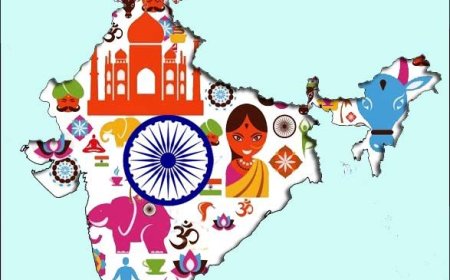Young Entrepreneurship is Changing the Face of Indian Business. Here's What it Means for the Economy
India’s new generation of entrepreneurs is driving innovation, boosting job creation, and transforming traditional industries, marking a powerful shift in the nation’s economy.

Have you ever come up with an outstanding idea that could help your friends, school, or even your neighborhood? That little spark is the start of a big thing!
Currently in India, we are witnessing a significant shift in the mindset of the young generation. Most of them are still very close to the age of fresh school or college graduates. They are transforming their wonderful ideas into gigantic, prosperous businesses. The phenomenon is called Young Entrepreneurship. It is nothing more than an outright revolution for Indian businesses.
Prior to getting into their effects on the economy, let us first sort out the main concept: what is entrepreneurship?
In a nutshell, entrepreneurship is about solving a problem or satisfying a customer's need with a new business. To be acknowledged as an entrepreneur, a person must have sharp foresight. They take a risk to bring something new or greatly improved into existence. This could be a product, a service, or making a process more efficient. Instead of just looking for work, entrepreneurs are the ones who actually create jobs!
Real-Life Superheroes and Their Major Concepts
The best method to grasp this transformation is by the narratives of the young Indian entrepreneurs. Moreover, the characteristics of entrepreneurship are revealed through these instances:

The Dropout Who Built an Empire
Ritesh Agarwal (OYO Rooms): At 19, Ritesh realized that the problem of getting clean, affordable, and trustworthy hotel rooms was a major issue in the Indian market. Instead of whining, he created OYO Rooms to resolve the matter! His smartness was in using technology to standardize the quality of low-priced hotels.
Key Characteristic: Visionary. He was able to see the little issue (poor budget hotels) and made it into a huge, worldwide solution.
The Young Kings of Speed
Kaivalya Vohra & Aadit Palicha (Zepto): These young buddies left Stanford University to show a new type of entrepreneurship, known as 'Quick Commerce,' to India. They assured—they would deliver groceries within 10 minutes!
Key Characteristic: Innovator. They brought into existence an entirely new business model by emphasizing drastic speed, thus compelling older delivery companies to rush to keep pace with them!
The Teen Tech Wonders
Shravan and Sanjay Kumaran (GoDimensions): The duo began mobile app development when they were just 12 and 10 years old, respectively! They made apps available for both Android and iPhone, and the downloads worldwide reached thousands.
Key Characteristic: Persistence and Skill. They gained knowledge of coding and business at a very early age, and it was hard and continuous learning that they showed as entrepreneurs. Hence, it took them full-time dedication.
The Meaning for the Economy
So, what’s the impact of this matter on the whole country? Here lies the enormous significance of the start-up business; the young companies established by youngsters give the whole Indian economy a big boost.
Job Creation: More Jobs for Everybody
This is one of the main advantages of start-ups. If Zoomcar or OYO becomes a success, they will not hire just a security guard; apart from that, they will take on delivery riders, engineers, and customer support, and managerial staff.
They convert a single person’s idea into thousands or millions of jobs! This contributes to the fight against unemployment, a major objective of the Indian economy.
Boosting the National Income
Young, successful companies make money, and they pay the government taxes on their profits. The government then allocates the tax revenue for the construction of new roads, schools, hospitals, and railways.
Basically, it is the entrepreneurs who create the nation's wealth, not just for themselves, but for every citizen.
Global Competitiveness
Indian start-ups are competing with the best in the world. Zomato, Ola, and Zerodha are well-known companies today, having achieved global recognition. As a result, India is leading the global market.

What’s Fuelling the Change?
What triggered the young entrepreneurs’ boom at this moment, not twenty years ago? The answer is the combination of several potent factors that provide a favorable environment for entrepreneurship.
The Digital Revolution
The majority of young people today have smartphones and access to cheap and fast internet. The cost of starting an online business is now much lower and easier than that of a physical store. Technological advancements have become the 'toolbox' for entrepreneurs.
Government Assistance
The Indian Government has initiated schemes such as 'Startup India' and 'Make in India', among others. Initiatives of this kind provide companies with easier regulations, reduced paperwork, and sometimes even directly grant them money. All this lowers the risk for the youth and hence, they are more likely to make a move towards entrepreneurship.
Role Models
The likes of Ritesh Agarwal getting global success portray a very bright future for the coming generation, who will be equally inspired. It indicates that a business degree or many years of experience are not a must; one just needs a brilliant thought and the heart to see it through.
Conclusion: The Future is Built by Young Hands
India's young entrepreneurs have not only started a trend but have also initiated a fundamental change in the manner the country now does business. The vitality, creativity, and risk-taking character of the young people are the most important resources for a developing economy.
These young people are not only making a lot of money but also creating solutions for common problems like finding cheap hotels or getting groceries delivered in ten minutes. They are indirectly contributing to the future growth of the Indian economy by creating employment opportunities, promoting competition, and opening new avenues for innovation.
Every time a young person chooses to start a new venture rather than just seeking employment, they are adding another wheel to the engine of India's development.
What's Your Reaction?
 Like
0
Like
0
 Dislike
0
Dislike
0
 Love
0
Love
0
 Funny
0
Funny
0
 Angry
0
Angry
0
 Sad
0
Sad
0
 Wow
0
Wow
0





































































































































































































